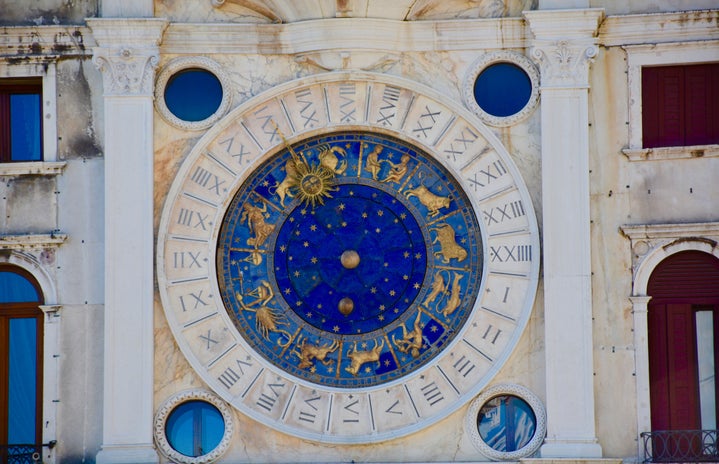Maybe readers would assume that my Introduction to Astronomy course would have taught me a bit about 2024’s solar eclipse, but my lack of knowledge is precisely why I have done some research.
Dubbed the Great North American Eclipse by the media, it will be the first eclipse to be visible in Canadian provinces since February 26th, 1979. It is even predicted to be the last total solar eclipse to be visible until August 23rd, 2044. To put this in perspective, I am writing this at the age of 19—and will be pushing 40 when the moon decides to steal the sun’s spotlight again.
Windsor Essex will be in the path of totality, which means we will experience a near-total eclipse of 99.5 percent. Therefore, people living in Windsor will be able to observe the moon covering the sun entirely. On April 8th, the eclipse is supposed to start around 1:58 P.M. and end around 4:30 PM. Totality, when the moon fully blocks the sun, lasts for three minutes, and is expected between 3:12 P.M. to 3:15 P.M.
Schools and workplaces in Ontario will end the day earlier because viewing the eclipse can cause serious damage to the eye without eye protection. If you are planning on viewing April 8th’s solar eclipse, do not use sunglasses, camera lenses, homemade filters, etc. There are specialized glasses or lenses made for these events that meet the international standard titled ISO 12312-2. It is important to remember to put the proper glasses or viewers on before turning to look at the eclipse and to turn away before taking off your eye protection.
With all that said, we know the solar eclipse is powerful and it can affect the happenings on Earth, including the behaviour of animals.
ANIMAL BEHAVIOUR DURING SOLAR ECLIPSES
Humans are not the only species that start to behave differently when the moon blots out the sun. Italian monk Ristoro d’Arezzo, described that the “[…] animals and wild beasts could easily be caught”, and astronomer Christoph Clavius observed that when totality occurs, “birds fall from the sky in terror from the sudden darkness”.
People may write off these historical anecdotes for dramatization, but even modern astronomers, specifically with studies performed in 2017, confirmed the theory. Animals noticeably react. There are cacophonies of noise from crickets and birds. Farm animals will automatically commence their nocturnal patterns, or return to their barns, frightened by the sudden change. Finally, domestic animals are reported to grow restless or confused or not to change at all depending on their environmental surroundings.
Eclipses do not follow replication, meaning they do not happen regularly in the same spots, they are not consistent in length, nor do they occur in consistent seasons or periods of the day. As a result, data collection, especially regarding animals, is challenging and often leans on human anecdotes.
SOLAR ECLIPSE CULTURAL MYTHOLOGIES
The phenomenon of the sun’s blaze and the cratered, cold moon combining certainly have drawn the attention of humans since time immemorial so here is how some ancient civilizations viewed the astronomical event:
- The Ancient Greeks
The ancient Greeks kept records of eclipses, and fragments of poetry have been discovered to confirm sightings of solar eclipses.
The legend that Greeks associated with the eclipse is that the gods (usually Zeus), are angry with humans, so the Sun would abandon Earth, and the night would grant them ‘untold misery.’
In fact, the word eclipse derives from a Greek word meaning ‘abandonment’.
- The Ancient Hindus
In Ancient Hindu mythology, it is said that a demon named Rahu desired the nectar of the gods to attain immortality. Rahu disguised as a god to taste the nectar; however, he was discovered by another god and as punishment Rahu was beheaded. It is believed that it is his head that flies across and darkens the sky for those brief minutes of totality.
- The Mayans
The Mayans, a civilization located in Central America, viewed distance in space and distance in time as the same thing. Meaning that if you gazed into the cosmos—you would be looking into the past.
Additionally, Mayans saw the moon eating the sun. The cannibalistic nature of this belief derives from the cannibalistic practices of their ancestors which is prohibited in Mayan culture. So, to the Mayans, the eclipse also serves as a reminder that anarchy can break out at any time.
- Ancient Chinese
In Chinese mythology, solar eclipses occur when a dragon tries to eat the sun. To prevent this from happening, people would crowd into the streets banging drums to scare the dragon away.
- Ancient Egyptians
Ancient Egyptians have an old myth centred on their sun god Ra. Ra typically travels across the sky in his solar boat, offering warmth and light to the world, but during one of Ra’s nightly journeys to the underworld, he faces threats and dangers. Most notably, the threat of the venomous snake Apep wishing to consume Ra and remove the light from the world.
- Ancient Arabians
As most Arab mythology derives, the story in Arabian Nights titled “The Sun and the Moon” is said to discuss the myth behind solar eclipses. In this tale, the sun and the moon are celestial beings with their respective palaces, that take turns visiting Earth and interacting with humans. However, the moon begins to grow jealous of the sun’s stronger hold on humanity. To assert dominance, the moon decides to cover the sun, causing eternal darkness to envelop the land. To reverse this, humans mobilize to frighten the moon away and restore light to the land.
Now, not all accounts of solar eclipses in the past have been associated with fear and punishment. The solar eclipse of 27 January 632 was visible in Medina in the lifetime of Prophet Muhammad (pbuh). The event coincided with the death of his son Ibrahim. The prophet (pbuh) stated that the eclipses of the sun and the moon were not bad omens, instead, they were a cosmic phenomenon that demonstrated the power of Allah, or God.
In conclusion, from being a bad omen of destruction to being a massive subject of scientific inquiry to becoming a tourist event for all to join in on (of course, capitalism is to blame for that last one), cultural understandings around eclipses have transformed.
Now, with all safety considered, make April 8th’s Monday a memorable one; hang out with friends, read this article again, plan a date, find a live stream, and be in the moment with this astronomical wonder.


